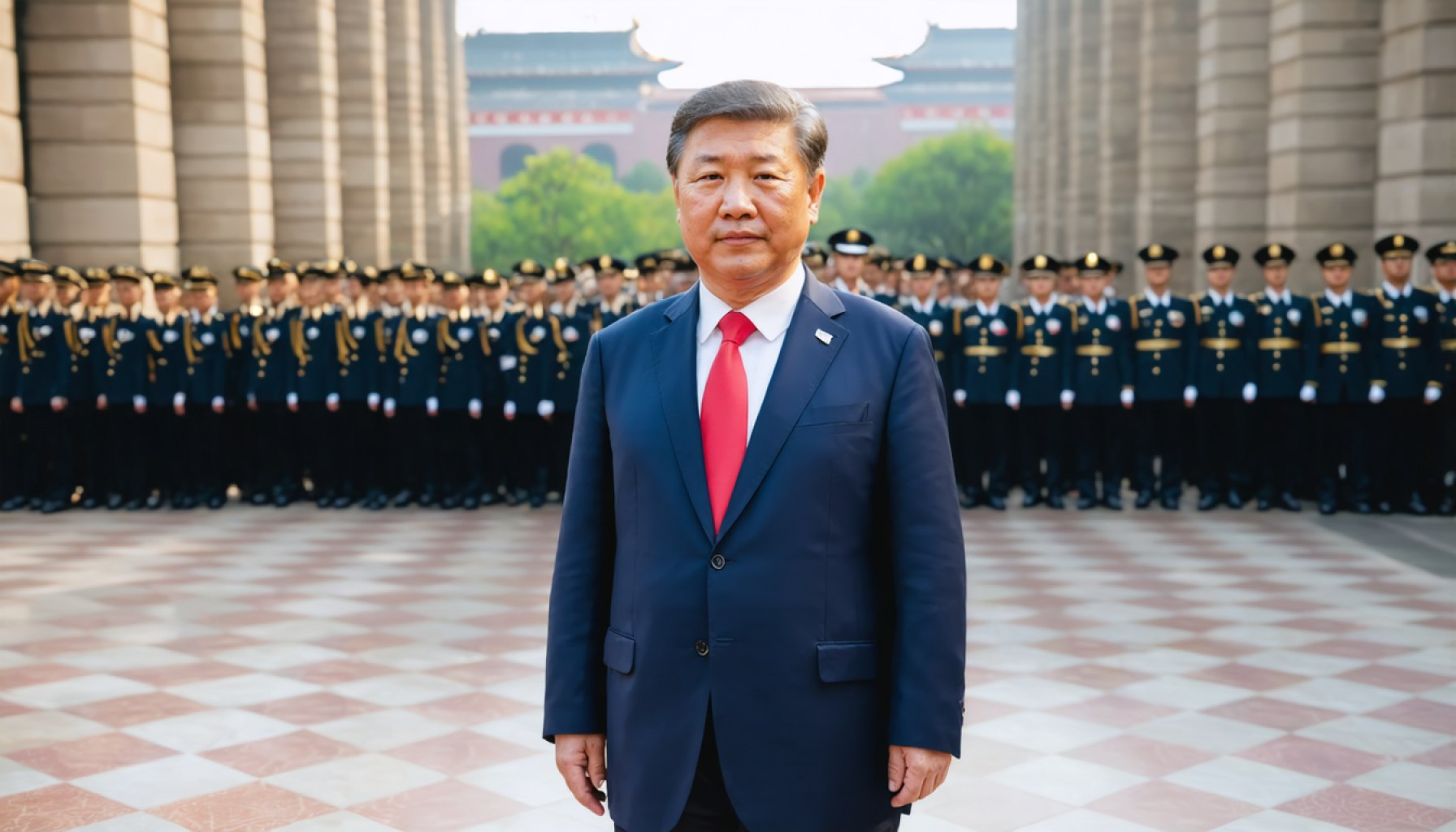- The Central Commission for Discipline Inspection is investigating Jiang Chaoliang, a significant figure in China’s agricultural and rural administration, over severe disciplinary and legal violations.
- Jiang Chaoliang’s past roles include serving as Governor of Jilin Province and Communist Party Secretary of Hubei, highlighting his once-powerful status within the government.
- This investigation underscores China’s commitment to maintaining integrity at high levels of government.
- The controversy highlights the pressures and scrutiny present in China’s political environment, demonstrating that no one is immune to investigation.
- The case amplifies discussions on transparency and accountability, emphasizing the importance of integrity in governance.
- International observers are closely watching the investigation’s outcomes, recognizing its broader implications for global perceptions of Chinese governance.
Amidst a swirl of political intrigue, a prominent figure in China’s government finds himself mired in controversy. The Central Commission for Discipline Inspection has announced a major investigation into Jiang Chaoliang, a key figure deeply entrenched in the country’s agricultural and rural administration. Born under the expansive skies of August 1957, Jiang rose through the ranks, having once orchestrated the governance as Governor of Jilin Province and later, the Communist Party Secretary of Hubei.
Jiang’s career, a tapestry of power and influence, now faces an abrupt unraveling. Allegations of severe disciplinary and legal violations cast a shadow over his storied political journey. The committee’s investigation, a beacon flashing red, signals China’s unwavering resolve to maintain integrity at the highest echelons of its administration.
This unfolding drama in Beijing serves as a compelling reminder of the intense pressures within China’s political sphere. As Jiang navigates the storm, the broader implications of transparency and accountability in governance shimmer into focus. In a world where power often ebbs and flows like the tides, the narrative gripping China’s top echelons echoes a timeless lesson: even those ascended to great heights are not beyond the reach of scrutiny.
As the dust settles, watchful eyes around the globe ponder over the reverberations of this investigation. The unfolding story is not just a downfall but a stark testament to the relentless pursuit of integrity.
China’s Political Turmoil: Unraveling the Jiang Chaoliang Investigation
Controversies & Limitations
The investigation into Jiang Chaoliang highlights the pervasive issues within China’s political framework. Critics suggest that such probes may sometimes be strategically timed or selectively enforced to sideline political adversaries, casting doubt on the impartiality of the justice system. This called into question the transparency and fairness of the process within a party-driven investigative framework in China.
Insights & Predictions
This investigation reflects a pattern of high-profile anti-corruption crusades that have been a hallmark of President Xi Jinping’s tenure. It is expected that such actions will continue to occur, aiming to consolidate power and reinforce party discipline. Analysts predict an increase in such investigations as China seeks to project an image of incorruptibility at home and abroad.
Real-World Use Cases
For other countries observing China’s political shifts, the Jiang Chaoliang case serves as a benchmark in tackling high-level corruption. Comparative studies of anti-corruption practices can help governments worldwide develop more robust systems. The transparency and reforms process in China sets a precedent; however, borrowing such a model might require adaptations to ensure justice and fairness globally.
Pros & Cons Overview
Pros:
– Reaffirms commitment to curbing corruption within the party.
– Encourages transparency in governmental processes.
– May bolster public confidence in the administrative mechanisms.
Cons:
– Risks being perceived as a tool for political power consolidation.
– Potential for public backlash if seen as politically motivated rather than an unbiased crackdown.
– Could lead to systemic instability if similar cases incite broader scrutiny of the leadership.
Security & Sustainability
Security in governance is critical for sustained development. Ensuring a zero-tolerance policy toward corruption might help in securing economic policies and long-term growth. Experts assert that rooting out corruption is essential for sustainable development, yet maintaining a balance between accountability and political stability is crucial.
Tutorials & Compatibility
To follow investigations similar to Jiang’s through official Chinese sources:
1. Access the Central Commission for Discipline Inspection’s website: Most announcements are publicly available, providing a primary source for information.
2. Use reliable global news agencies: Such outlets often provide insightful analyses and context around these developments.
3. Engage with political forums and experts: Online discussions often provide diverse perspectives, enhancing understanding.
For those interested in comparative studies, mapping China’s process against global practices offers learning opportunities in governance.
Conclusion & Quick Tips
1. Stay Informed: Regularly check updates from credible international news platforms and official Chinese sources about the ongoing investigation.
2. Understand the Context: Familiarize yourself with China’s political history and anti-corruption campaigns to grasp better the implications of such investigations.
3. Engage Critically: Consider the motivations and implications behind such high-profile cases, both in the context of internal politics and international relations.
For more on global political developments and insights into governance, visit resources like BBC and Reuters.
